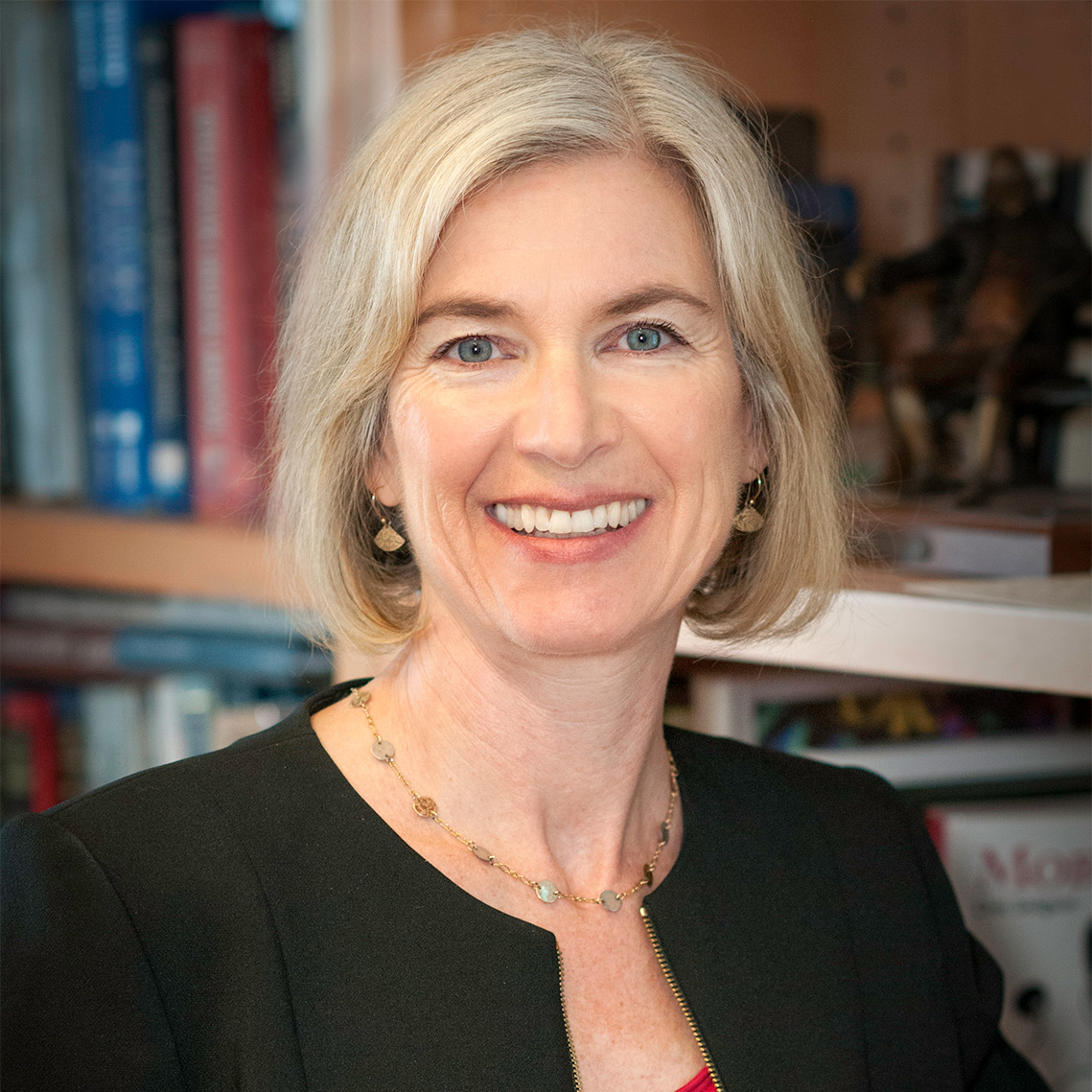使用账号密码登录
Welcome Back
使用表单注册
Welcome Back
Brief Introduction
Jennifer Doudna, PhD is a biochemist at the University of California, Berkeley. Her groundbreaking development of CRISPR-Cas9 — a genome engineering technology that allows researchers to edit DNA — with collaborator Emmanuelle Charpentier earned the two the 2020 Nobel Prize in Chemistry and forever changed the course of human and agricultural genomics research. She is also the founder and President of the Innovative Genomics Institute, the Li Ka Shing chancellor’s chair in Biomedical and Health Sciences, and a member of the Howard Hughes Medical Institute, Lawrence Berkeley National Lab, Gladstone Institutes, the National Academy of Sciences, and the American Academy of Arts and Sciences. She is a leader in the global public debate on the responsible use of CRISPR and has co-founded and serves on the advisory panel of several companies that use the technology in unique ways. Doudna is the co-author of “A Crack in Creation,” a personal account of her research and the societal and ethical implications of gene editing.
Biography
Dr. Jennifer A. Doudna is the Li Ka Shing Chancellor’s Chair and a Professor in the Departments of Chemistry and of Molecular and Cell Biology at the University of California, Berkeley. Her groundbreaking development of CRISPR-Cas9 as a genome-engineering technology, with collaborator Emmanuelle Charpentier, earned the two the 2020 Nobel Prize in Chemistry and forever changed the course of human and agricultural genomics research.
This powerful technology enables scientists to change DNA — the code of life — with a precision only dreamed of just a few years ago. Labs worldwide have re-directed the course of their research programs to incorporate this new tool, creating a CRISPR revolution with huge implications across biology and medicine.
In addition to her scientific achievements, Doudna is a leader in public discussion of the ethical implications of genome editing for human biology and societies, and advocates for thoughtful approaches to the development of policies around the safe use of CRISPR technology.
Doudna is an investigator with the Howard Hughes Medical Institute, senior investigator at Gladstone Institutes, and the President of the Innovative Genomics Institute. She co-founded and serves on the advisory panel of several companies that use CRISPR technology in unique ways.
She is a member of the National Academy of Sciences, the National Academy of Medicine, the National Academy of Inventors, and the American Academy of Arts and Sciences. Doudna is also a Foreign Member of the Royal Society and has received numerous other honors including the Breakthrough Prize in Life Sciences (2015), the Japan Prize (2016), Kavli Prize (2018), the LUI Che Woo Welfare Betterment Prize (2019), and the Wolf Prize in Medicine (2020). Doudna’s work led TIME to recognize her as one of the “100 Most Influential People” in 2015 and a runner-up for “Person of the Year” in 2016. She is the co-author of “A Crack in Creation,” a personal account of her research and the societal and ethical implications of gene editing.
BIOGRAPHIC TIMELINE
1964 — Jennifer is born in Washington, D.C.
1971 — Jennifer and family move to Hilo, Hawaii, where her father taught American Literature at the University of Hawaii at Hilo, and her mother taught History at Hawaii Community College.
1981 — Jennifer leaves Hawaii to attend Pomona College in Claremont, California, studying biochemistry.
1985 — Jennifer attends Harvard Medical School, earning a Ph.D. in Biological Chemistry and Molecular Pharmacology in 1989, supervised by Jack Szostak.
1991 — Jennifer spends three years at the University of Colorado Boulder as the Lucille P. Markey Postdoctoral Scholar in Biomedical Science, working with Thomas Cech.
1994 — Jennifer accepts a position as an assistant professor at Yale University in the Department of Molecular Biophysics and Biochemistry.
2002 — Jennifer and husband Jamie Cate move to UC Berkeley; Jennifer takes on a joint professorship in Molecular and Cell Biology and Chemistry.
2006 — UC Berkeley professor Jill Banfield introduces Jennifer to CRISPR systems in bacteria.
2008 — First International CRISPR meeting is held in Berkeley, co-organized by the Banfield and Doudna labs with Mark Young at Montana State University.
2011 — Jennifer meets Emmanuelle Charpentier at the annual American Society for Microbiology meeting in Puerto Rico, and they start a collaboration.
2012 — "A programmable dual RNA-guided DNA endonuclease in adaptive bacterial immunity" is published in Science, showing how the Cas9 system works in vitro and laying the groundwork for how it could be used for genome editing.
2014 — Jennifer and Jonathan Weissman co-found the IGI (originally as the Innovative Genomics Initiative, becoming the Innovative Genomics Institute in 2017).
2019 — First US patients are treated with CRISPR-based therapies in clinical trials.
2020 — Nobel Prize in Chemistry is awarded to Jennifer Doudna and Emmanuelle Charpentier.
CRISPR: The Science and Opportunity of Genome Editing
Fundamental research to understand how bacteria fight viral infections uncovered the function of CRISPR-Cas programmable proteins that detect and cut specific DNA or RNA sequences. I will describe our research showing how CRISPR-Cas9, an RNA-guided protein, can be used for re-writing the DNA in cells and organisms to create a widely accessible technology for genome editing. Current research focuses on continuing to explore the biochemical basis for genome editing, and to develop effective applications in medicine and agriculture. I will also discuss the development of CRISPR-based diagnostics technology to address the current coronavirus pandemic and improve future preparedness.

